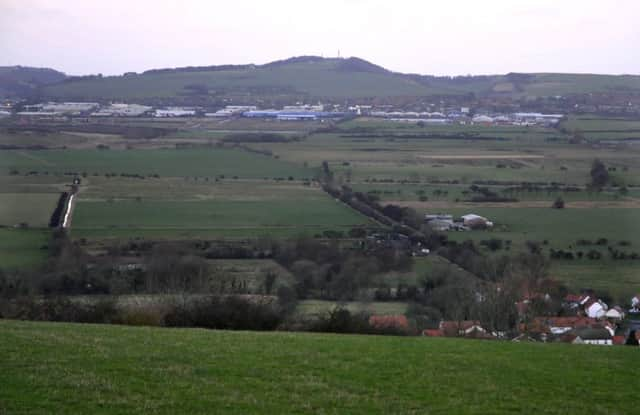Village focus: Folkton and Flixton's winning partnership


Less so the surroundings for the last game of the season, a fortnight ago.
Pursued by about 800 of their friends and families in coaches, on the train and the motorway, the First XI made their way south, to walk out on the hallowed ground of Lord’s, the spiritual home of the game.
Advertisement
Hide AdAdvertisement
Hide AdFolkton and Flixton CC had reached the final of the National Village Cup, and on an afternoon the twin villages will not soon forget, saw off their rivals from Hampshire by 72 runs and held the trophy aloft.
The communities are separated by less than a mile but connected by the parish boundary. The little church at Folkton serves both villages; the sole remaining pub, the Foxhound on the main street in Flixton, likewise.
The other commercial premises have mostly gone. The Post Office and the local shops are history, though the Foxhound doubles as a chippy, catering for locals and ramblers diverted from the long distance Yorkshire Wolds Way footpath, which runs nearby.
The latest amenity to disappear was the bus which formerly connected the residents to Bridlington.
Advertisement
Hide AdAdvertisement
Hide Ad“We’re a lost village now,” said Bryan Found, a parish councillor and a fourth generation farmer in Folkton. “No-one takes anybody anywhere now. You’ve got to drive or take a taxi.”
There is still a local school, though. Hertford Vale primary, two miles away in the village of Staxton, takes pupils from all three villages and has a roll of around 120.
The cricket team, Mr Found noted, as Flixton’s fields are turned over to their winter use as football pitches, is a microcosm of the county game. It used to be comprised solely of players born in the parish, but many now are compelled by a shortage of suitable houses to live outside, and are brought back to make up the numbers.
“People used to live with their families, with grandma looking after the kids while the parents worked. That’s all gone now,” Mr Found said.
Advertisement
Hide AdAdvertisement
Hide Ad“Relatively speaking, it’s expensive to live here, With Brexit, a lot of houses for sale haven’t moved for over a year, while some of the smaller ones go immediately.”
The homes in question are often distinctive pairs of single-storey former farmworkers’ cottages, built of thick, white chalk from the Wolds.
“About 90 per cent of the community used to be in agriculture,” Mr Found said. “Now, I would say nearly half the houses are occupied by retired people.”
If the old ways of labour-intensive farming have gone, the modern industry thrives here. On the edge of Folkton, Springfield Farm is home to more than 3,000 production pigs, and Bayview Farm in Flixton harvests honey from its own hives.